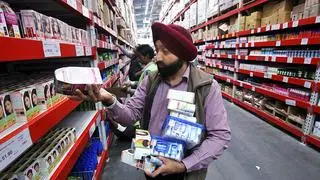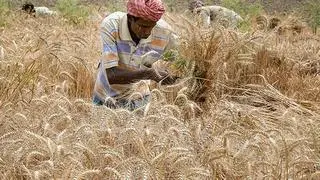Notwithstanding the Government push to 'Make in India', the minimum import price on steel is driving up import of finished steel products putting immense pressure on small scale units.
Import of finished goods in the form of steel and iron products has increased 22.5 per cent and 51 per cent between June and August this year, according to an Engineering and Export Promotion Council India analysis.
On the other hand, import of raw material -- steel and iron -- has dipped 26 per cent and 33 per cent between June and August, said the apex body for exports in a statement on Thursday.
This is a clear case of inverted duty, some thing which is not good for India’s drive on manufacturing, it said.
In August, the Government extended the minimum import price on 66 steel products ranging between $341-752 per tonne till October 4. This will be reviewed based on import numbers.
The user engineering industry especially the MSME units in auto and auto parts, industrial and electrical machinery sectors are facing difficulty because of sudden escalation in raw material price. These sectors, which have low margins, are facing cut-throat competition and finding it difficult to compete globally.
In international bidding, there are instances where Indian companies are losing contracts due to cost factor, it said.
Strongly opposing extension of a highly restrictive steel import regime, TS Bhasin, Chairman, EEPC India, said the inverted duty structure at this stage would be a big setback to the government’s flagship Make in India programme where the entire focus is on taking the country several notches up on the value chain to make India a factory of the world.






Comments
Comments have to be in English, and in full sentences. They cannot be abusive or personal. Please abide by our community guidelines for posting your comments.
We have migrated to a new commenting platform. If you are already a registered user of TheHindu Businessline and logged in, you may continue to engage with our articles. If you do not have an account please register and login to post comments. Users can access their older comments by logging into their accounts on Vuukle.